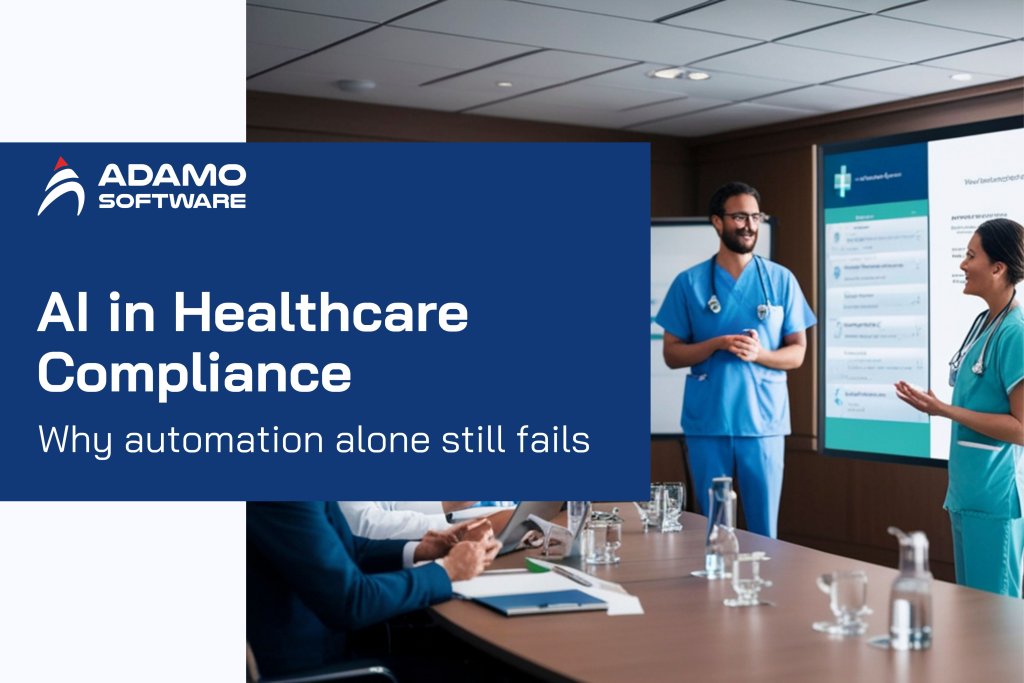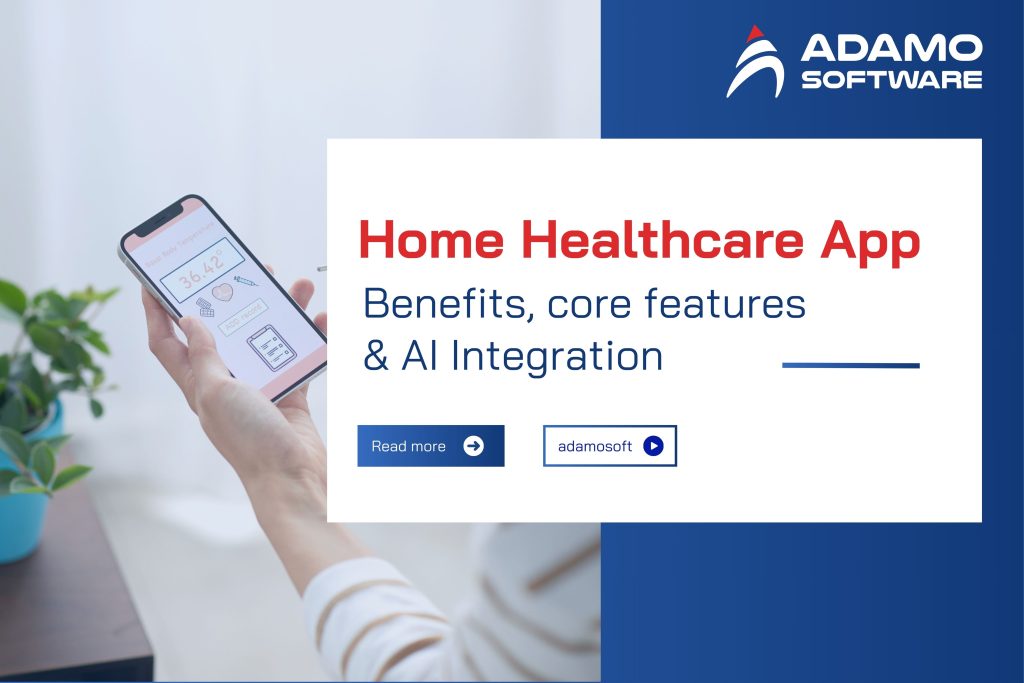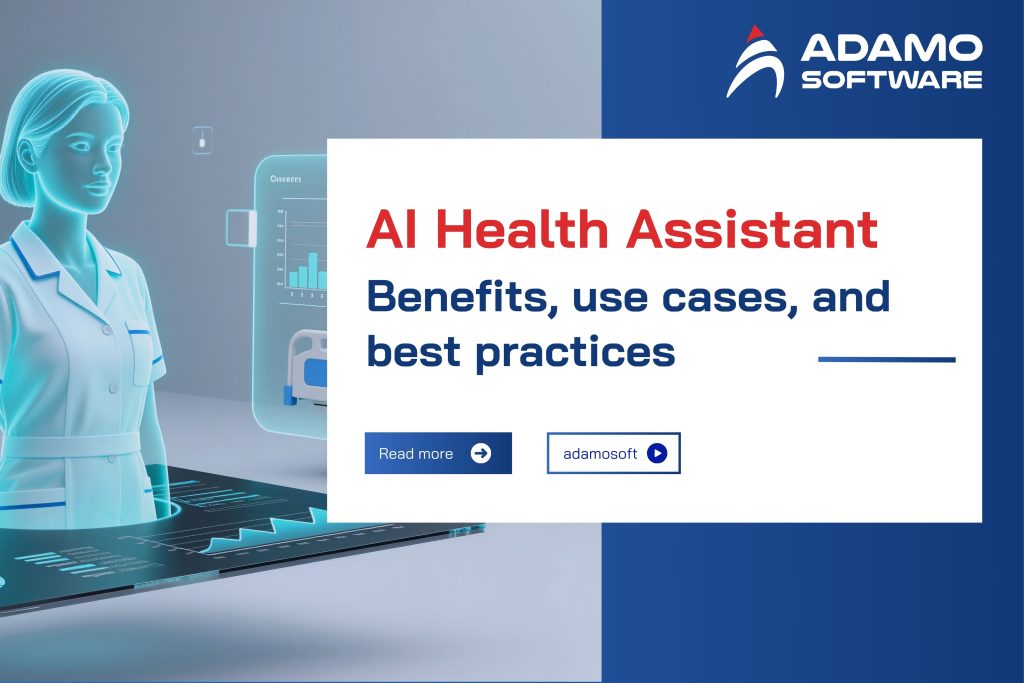Medication Management Software: What It Is, Key Types, Features & Top Tools
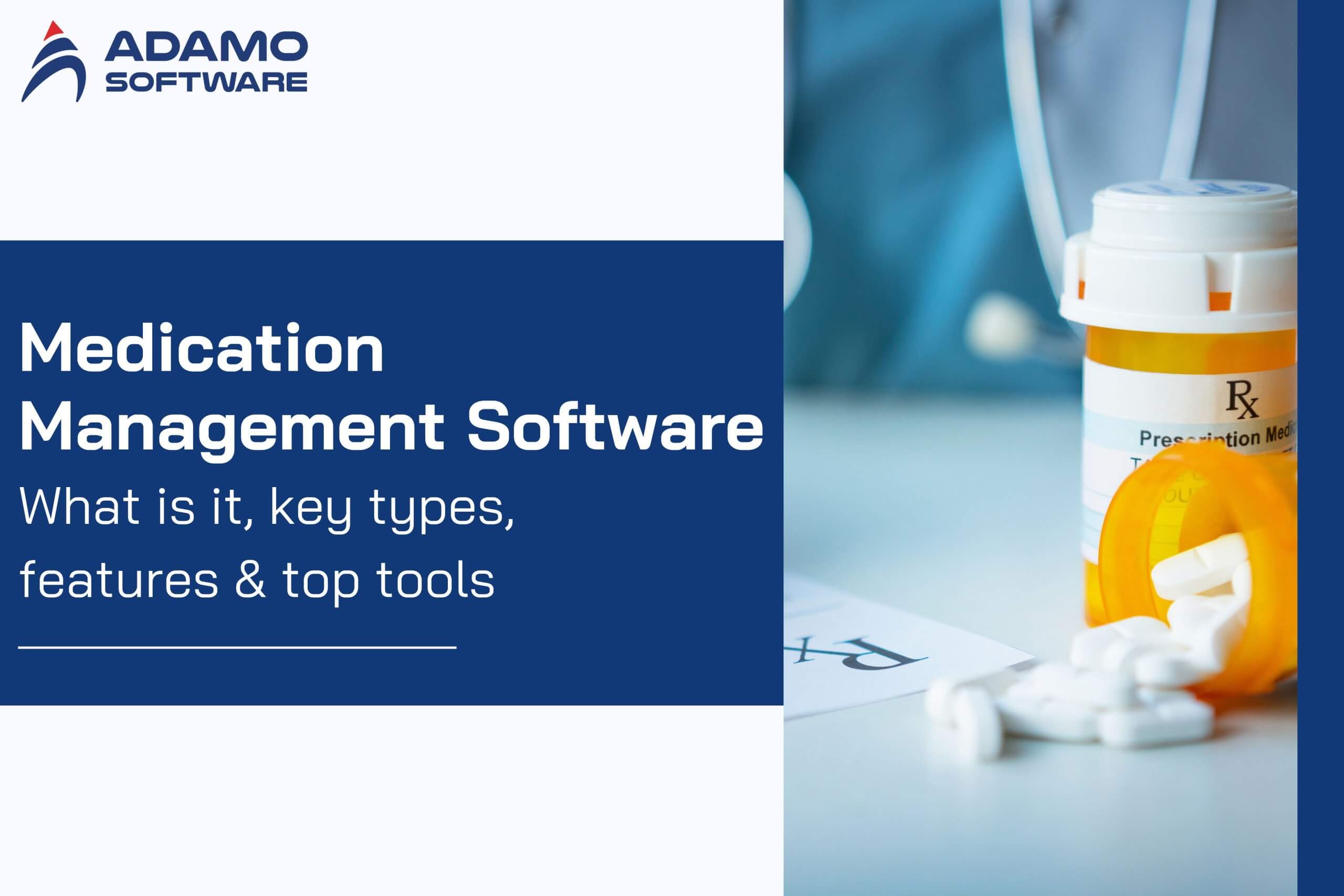
Discover key benefits, features & top 6 medication management software to boost treatment adherence and patient safety.
Medication management is not a simple matter, especially for those who are treating chronic diseases or have to take multiple medications at the same time. Remembering the correct dosage, taking it on time, and avoiding drug interactions can become a challenge. And sometimes, even a small mistake can seriously affect health.
That is why medication management software was born. This is not just a simple tool but a solution to help patients, relatives, and the entire medical team monitor medication use more effectively. With features such as reminders, dosage tracking, and health data analysis, this software helps reduce errors, increase treatment compliance, and improve overall treatment outcomes.
In this article, we will learn about the outstanding benefits of medication management software, as well as introduce 6 platforms that are trusted by many medical businesses.
I. What is Medication Management Software?
Medication management software are apps designed to manage, track, and optimize a patient’s medication regimen. These apps help healthcare providers track prescriptions, adherence, and other potential drug interactions that require patients to take their medications properly.
II. Fundamental types of Medical Management Apps
Medication management software helps patients and healthcare providers stay organized by simplifying how medications are tracked, scheduled, and managed. They also ensure compliance and reduce errors.
There are a few common types of apps, each designed for different medication needs:
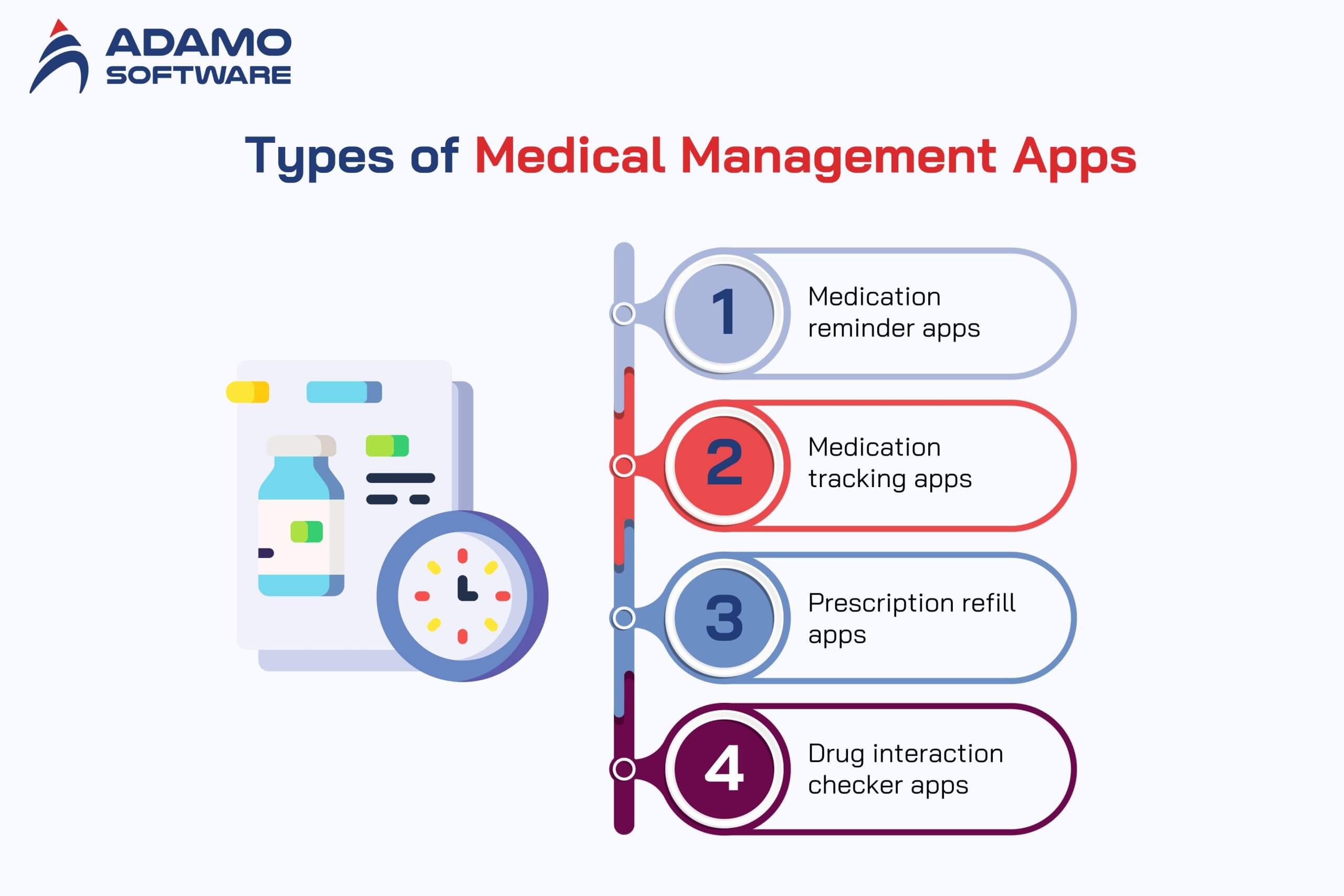
1. Medication reminder apps
Taking medications on time is important, especially for patients with forgetfulness and memory loss. Medication reminder apps send alerts or notifications to remind users to take their medicines on time. Users can also create customized schedules for different medications, all in one place. Some apps also include clear dose instructions and gentle reminders when it’s time to refill.
2. Medication tracking apps
These apps track medication adherence by recording when users take their medications. Users can be better monitored and supported by sharing this history with a caregiver or healthcare provider.
3. Prescription Refill Apps
In addition to medication tracking software, several apps can streamline the prescription refill process. They allow users to order refills directly through the app and notify them when it’s time to reorder. Many apps can integrate with pharmacies for automated refills.
4. Drug Interaction Checker Apps
The last popular type of medication management software is the drug interaction checker app. These help users check for potential interactions between medications and provide warnings or advice when certain medications should not be taken together. This is an especially useful app for people who take multiple medications.
You can explore more about Hospital Management Systems: Types, Key Features & Must-Know Insights here.
III. Benefits of Medication Management Software
Medication management software is becoming an essential tool in modern healthcare. This software supports medication monitoring and improves patient care, optimizes treatment effectiveness, and minimizes risks. Here are key benefits of medication management software:
1. Improve medication compliance
Adhering to the correct dosage and medication time is key to achieving effective treatment. Medication management software helps patients take medication as their doctor prescribes, through features such as reminders, dose warnings, and medication history tracking. As a result, patients reduce the risk of forgetting doses or using the wrong method.
2. Reduce medication-related errors
Medication errors are a common cause of complications or unwanted side effects. Medication management software supports the automation of prescribing, dispensing, and monitoring processes and provides warnings for drug interactions, allergies, or contraindications. This not only supports patients but is also particularly useful for doctors, nurses, and healthcare facilities.
3. Enhance patient safety
Medication management software ensures that patients receive the right medication, in the right dose, at the right time, while monitoring adverse reactions for timely intervention. This is an important factor in minimizing medical complications and improving the quality of care.
4. Optimize treatment effectiveness
Drug treatment aims to help patients achieve the best possible outcome for their health condition. Medication management software supports this solution by providing tools and data to monitor drug reactions over time.
By recording and analyzing medication use data, medication management software helps healthcare teams assess how patients respond to their medications. From there, they can adjust the appropriate regimen, personalize treatment, and improve long-term health outcomes.
5. Facilitates Communication
Effective communication is key to successful medication management. Therefore, medication management software ensures improved collaboration between users, caregivers, and healthcare providers by providing a centralized platform for sharing information about medication plans. Medication management software ensures that everyone involved in a patient’s care is fully informed and working together towards the best possible health outcomes.
With clear and effective communication channels, patients can rest assured that their medication needs are being addressed in a coordinated and comprehensive manner.
6. Chronic Condition Management Apps
Chronic condition management apps are designed to support users with long-term health issues like diabetes, high blood pressure, or asthma. These apps help users stay on top of their daily medications, monitor key health metrics, and better manage their condition over time. Many also sync seamlessly with wearable devices, making tracking real-time data and sharing insights with healthcare providers easier.
7. Medication Information Apps
Customized medication management software can provide detailed medication information, including dosage instructions, potential side effects, and alternatives. They can also help users better understand their medications and reduce the risk of misinformation.
Different types of medication management software address various needs within the medication management system. Whether it’s a simple reminder or complete long-term support, each solution is tailored to fit specific healthcare needs.
IV. Must-have features for essential Medication Management App
For a medication management app to work effectively, it must include features that help users stick to their medication schedules, stay informed, and monitor their health. Here are the key features every medication management app should have:
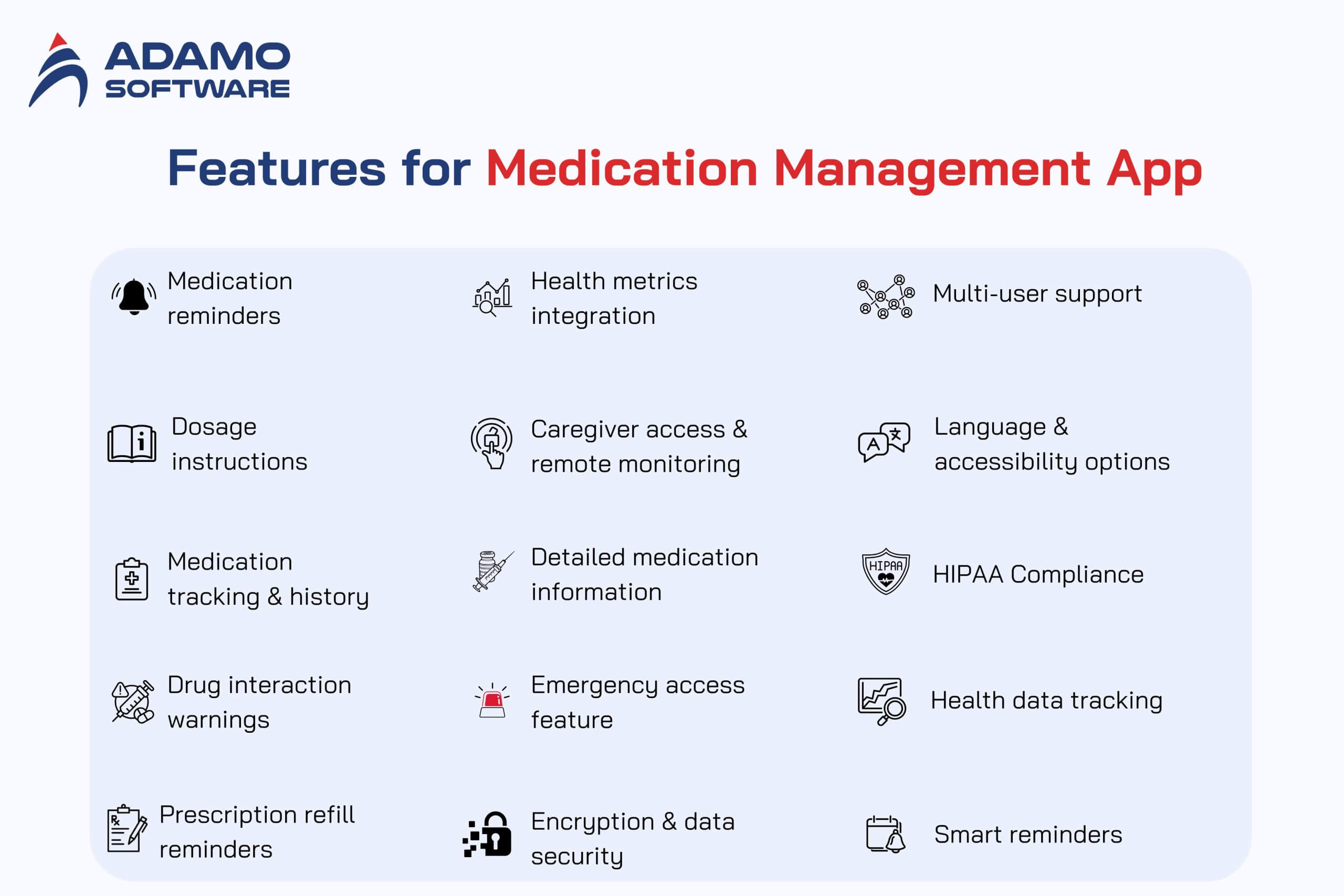
1. Medication Reminders
Medication reminders are a key feature in most medication management apps. These reminders should offer flexibility for daily, weekly, or monthly schedules and allow users to set precise times for taking their medications.
2. Dosage Instructions
Clear instructions for each medication—such as dosage, frequency, and timing—ensure users know exactly how to take their medications, reducing the chance of errors.
3. Medication Tracking and History
The medication history feature allows users and caregivers to track medication adherence as prescribed. It also helps users spot any missed doses over time. The app should store this history for easy access and allow users to add notes or updates.
4. Drug Interaction Warnings
Medication management apps often include drug interaction warnings, which are essential for ensuring safety. A drug interaction checker notifies users of potential harmful interactions when taking multiple medications, helping to prevent risks from incompatible drug combinations.
5. Prescription Refill Reminders
This feature will send reminders when it’s time to renew your prescription, ensuring users always take their medication as prescribed. Some apps even offer automatic refills, helping users stay on track with their essential prescriptions.
6. Health Metrics Integration
Integration with health metrics (e.g., blood pressure, blood sugar) makes managing chronic conditions easier for users and caregivers. Many medication management software today can sync with wearable devices or health monitoring tools. The integration provides a comprehensive view of a user’s health and helps catch potential issues early.
7. Caregiver Access and Remote Monitoring
Sometimes, medication management isn’t just the patient’s job; caregivers and family members often play an important role as well. Remote monitoring allows caregivers or family members to monitor medication adherence without being physically present. This is especially helpful for older patients or anyone with trouble remembering their doses.
8. Detailed Medication Information
Not everyone is knowledgeable about medications—and that’s okay. Having quick, clear, and easy-to-understand information about each medication (including possible side effects, precautions, and alternative names) gives patients peace of mind about their medications. It also helps them make better-informed choices about their treatment.
9. Emergency Access Feature
The quick access feature allows healthcare providers to easily view a user’s medication list, allergies, and health history, which can be crucial in emergency situations.
10. Encryption and Data Security
Robust encryption and data protection protocols ensure that users’ health information remains secure and private, while also complying with regulations like HIPAA (in the US) or GDPR (in the EU).
11. Multi-User Support
If one manages medications for family members like children or seniors, having everything in one place is a lifesaver. This feature allows users to set up and manage multiple profiles in the same app without juggling separate accounts.
12. Language and Accessibility Options
Language settings and accessibility options—like voice commands or larger fonts—make the app easier to use for everyone, especially seniors and those with visual impairments.
13. HIPAA Compliance
Medication management software must ensure HIPAA compliance by encrypting health data, implementing role-based access controls, and maintaining an audit trail to record all data interactions securely.
14. Health Data Tracking
With health tracking features, users can monitor symptoms, side effects, and vital signs like blood pressure to see how medications are affecting them. Syncing with wearables also provides deeper insights and helps adjust treatment when needed.
15. Smart Reminders
Smart reminders provide personalized schedules for users. At the same time, it also provides flexible alerts to help users track medication use more effectively. Visual cues and timely notifications make it easier to stay on track.
V. Top 6 recommended Medication Management Software for health businesses
1. CareMeds
CareMeds is a medication management software designed specifically for businesses providing full-service home care and special clients who need home care. This system allows caregivers to record history and manage medication schedules. At the same time, it will enable managers to track progress, care service routes, and compliance with medication regulations.
2. Nourish Care
Nourish Care is a comprehensive medication management software that integrates with the large and small functions of the eMAR system. With Nourish Care’s eMAR tools, caregivers can record prescription management and dosages and access medication schedules and medical records on their mobile devices.
3. CarePlanner
CarePlanner is a cloud-based medication management software that includes all eMAR modules. It allows caregivers to store and track medication administration and supports managers in ensuring medication compliance and managing medication-related incidents.
4. Birdie
Birdie is an all-in-one digital platform for home care providers. It features a powerful eMAR module. Birdie’s eMAR system allows caregivers to record medication dispensing easily and helps managers quickly resolve medication-related issues.
In addition, Birdie’s eMAR module also provides detailed reporting and analytics, allowing care units to more intuitively track medication usage data, easily identify trends, and detect areas for improvement in the care process.
5. CareForIT
Another popular medication management software that integrates the eMAR module is CareForIT. This solution also helps caregivers set up and track patient medication schedules effectively. It also allows managers to monitor service quality and user compliance.
6. CareLineLive
CareLineLive is also an eMAR-integrated medication management software. Caregivers can easily manage and record medication use, while managers can track care processes and patient compliance.
These are just a few popular eMAR platforms trusted by home care businesses. However, choosing the right solution should be based on your business’s actual needs and scale of operations.
VI. How can Adamo Software help?

Adamo Software is a multi-disciplinary software development company with outstanding strengths in the healthcare industry. We have successfully deployed many solutions such as medication management software, electronic health records (EHR/EMR), and patient management software, … to help improve the quality of care and operational efficiency.
With a team of experienced experts, Adamo provides custom healthcare software development services that meet security standards such as HIPAA and GDPR. We are committed to accompanying healthcare businesses in the digital transformation, from solution consulting to implementation and long-term support.



